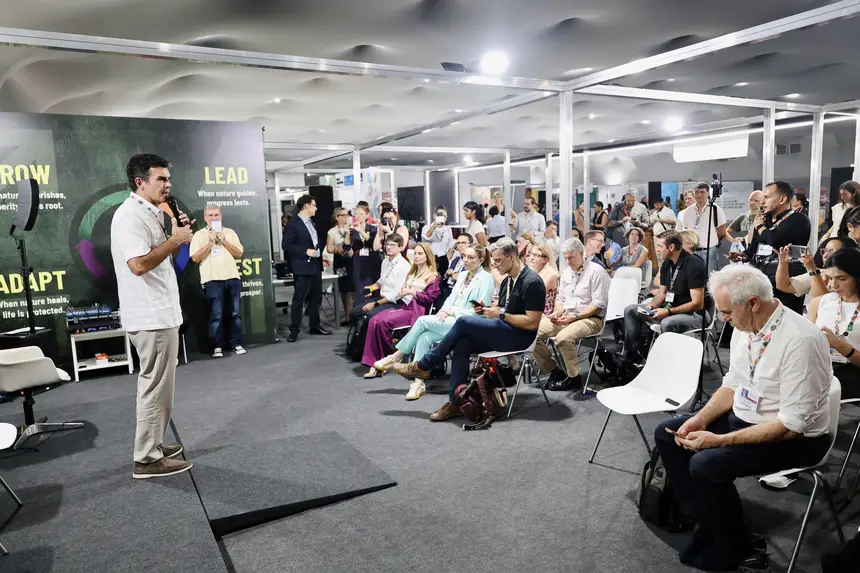'If the market does not value it, there will be no adherence,' says governor about livestock traceability in Pará
Helder Barbalho highlighted in a panel at COP30 the institutional effort of the state government for a sustainable production model

The governor of Pará, Helder Barbalho, concluded the panel "Unlocking Finance and Procurement for a Nature-Positive Food System Transition," held in the Blue Zone of COP30 in Belém, with a direct message to international markets and actors in the beef supply chain: the individual traceability of the herd, a strategic agenda of the State, will only advance if it is properly recognized and economically valued.
The governor emphasized that Pará has been seeking to lead the transition to a sustainable production model, integrating public policies, science, and partnerships with the private sector. However, he highlighted that this effort cannot be based solely on the goodwill of producers or on abstract appeals to environmental conservation.
He made it clear that there will be no widespread adherence from the rural sector if the cost of traceability is borne exclusively by producers, especially those in more remote regions.
"Either we convince the markets that good practices need to have objective, capitalist, market recognition. Or we will not be able to impose on the producer the burden of covering additional costs to trace each animal. If the market does not value this movement, it will not understand that it is worth it," he stated.
The governor reinforced that the consolidation of sustainable livestock farming in Pará depends on joint action among producers, slaughterhouses, international buyers, investors, and governments. He stresses that each link has a defined role: the producer must adhere to good practices; the industry needs to acknowledge that this movement is strategic and necessary; and the market, both national and international, must reward products aligned with environmental goals.
"Do not expect us to achieve adherence through acts of romanticism, philanthropy, or environmental devotion," he emphasized, pointing out that sustainability needs to be integrated into pricing, financing, and procurement mechanisms.

International debate on sustainable production chains
The panel promoted by The Nature Conservancy (TNC) Brazil discussed how financial innovations, credit instruments, and new purchasing practices can accelerate the transition to nature-positive food systems.
Focusing on two of the main pressure vectors on land use (beef and soy), the debate highlighted solutions that are already underway in the region, such as Pará's Sustainable Livestock Program, VISEC, and CCAT. The initiatives were presented as examples of partnerships capable of reducing risks, increasing investments, and generating security for companies seeking deforestation-free supply chains.









